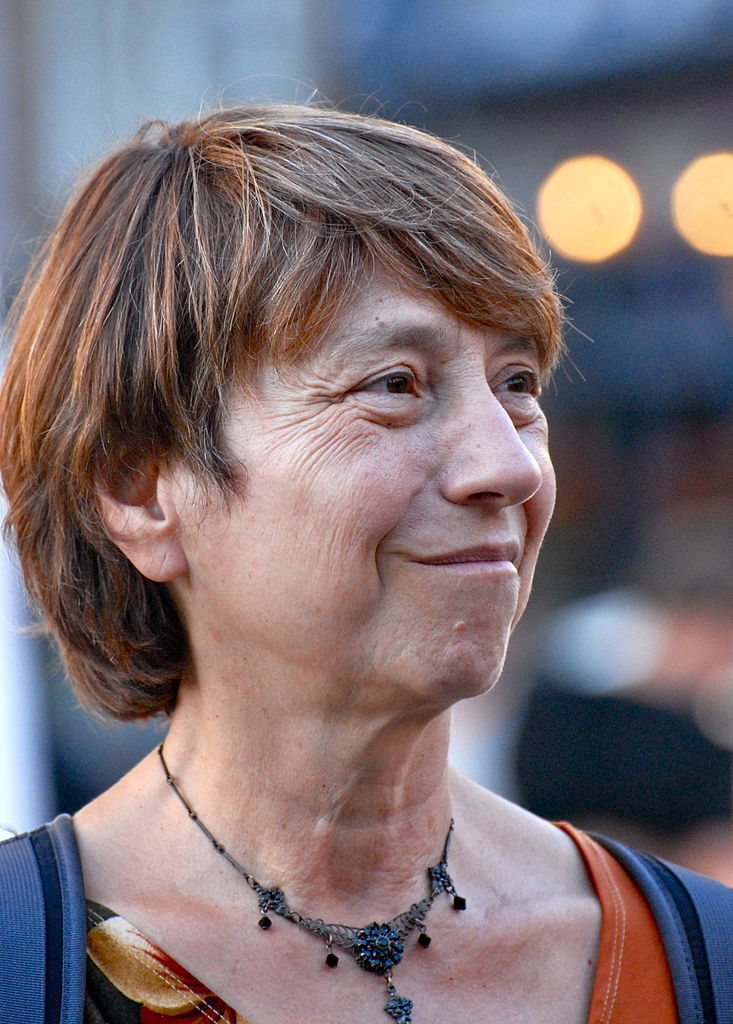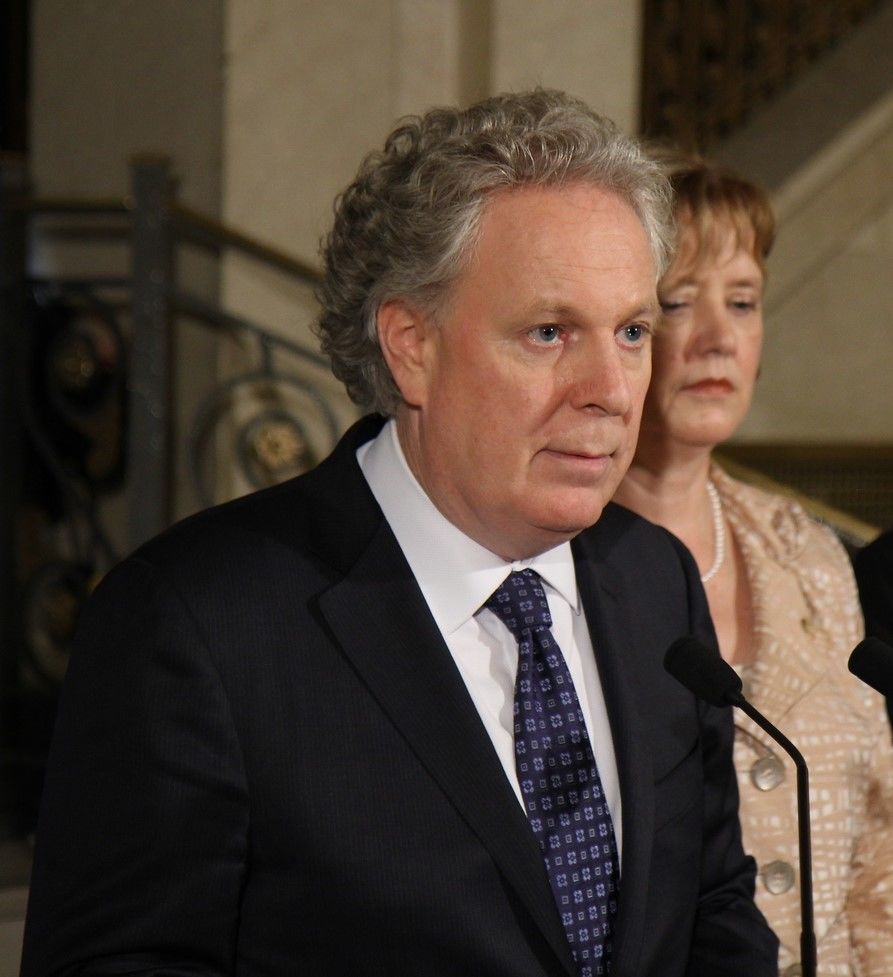Quebec experienced an economic downturn in the 1980s, which raised the question of the state’s role in economic development. People began to question the welfare state, meaning the political ideology that supports the government‘s presence in the economy by providing more social services. There was much debate in Quebec between supporters of neoliberalism who wanted to limit the state’s investment in Quebec’s economy, and defenders of the welfare state.
A welfare state refers to a state that actively intervenes in the economic and social sectors to promote societal development and redistribute collective wealth equitably.
Neoliberalism is an economic model advocating for less involvement of the state in the economy, and in which private companies play a more significant role.This ideology advocates for low taxation of the population to provide citizens with financial freedom so they can meet their own needs without relying on government services. As such, importance is placed on individual responsibility, and services are more often provided by the private sector.
Along with many other developed countries in the world, Canada experienced significant economic difficulties in the 1980s. With less money, the state had trouble maintaining its social programs without going into debt. In the wake of neoliberalism, Canadian Prime Minister Brian Mulroney and Quebec Premier Robert Bourassa made budget cuts to social programs in order to limit public debt.

Robert Bourassa was Quebec’s premier from 1985 to 1994. He implemented neoliberal policies to reduce the effects of the economic recession.
Source: Robert Bourassa [Photography], n.d., around 1970, BAnQ, (URL).
These policies had negative repercussions and reduced several services such as employment insurance, family allowances and healthcare accessibility.
| Régime de l'Assurance Maladie du Québec (RAMQ) | Provincial program providing free universal healthcare to all Québécois. |
| Public instruction | Provincial service offering all families the option of free education for their children in a public school. |
| Employment Insurance | Federal program providing income for all Canadians searching for work. |
| Old Age Security (OAS) | Federal program providing all Canadians 65 and older with an income every month, subject to legal status conditions. |
Some services are also transferred to private companies, as was the case for Air Canada and Petro-Canada. Both these companies were privatized, meaning private groups managed them instead of the state.
In opposition to neoliberal policies, the social economy sought to counteract the negative effects of cutbacks to social programs. The social economy, which emerged slowly in the 1990s, aimed to reduce the gap between the rich and the poor in Quebec society by encouraging the development of cooperatives in which profits are returned to participants. The movement also aims to fight climate change and social exclusion, including all minorities in its vision.

Several political figures have emerged in the social economy movement. One is Françoise David, who was co-spokesperson for Québec Solidaire from 2006 to 2017.
Source: Françoise David, co-spokesperson for Québec Solidaire, in the Quebec City, during the Quebec general election of 2012 [Photo], Asclepias, August 24, 2012, Wikimedia Commons (URL), CC BY 3.0
The social economy gained traction with politicians through pressure exerted by civil society. Groups of citizens excluded from power called for political change through various actions such as organizing protests. Many citizens denounced neoliberalism and demanded change to protect social programs.
In 2012, Quebec experienced historic student strikes. Many students throughout the province voted to strike in opposition to a proposed tuition hike announced by Jean Charest’s liberal government. These citizens called for political change and organized various actions, such as strikes and protests. They were also fighting for everyone to be given an equal opportunity to access education. However, an equally large portion of the population did not support this movement, including some students.
The months of strikes were filled with many gatherings and protests in the streets of Quebec’s cities. The 2012 provincial elections marked the end of the strike when Pauline Marois and the Parti Québécois won and promised to cancel the tuition increase.
Check out the following articles to find out more about this topic:
Public consultations were organized by the government to more effectively hear civil society demands. During these discussions and public pronouncements, citizens were invited to share their opinions to inform the government’s decisions. These consultations took different forms, such as referendums or advisory committees.
State neutrality is a topic that dates back to the Quiet Revolution when Quebec was moving away from the “great darkness” of Maurice Duplessis and the church’s influence. Public institutions, such as schools, gradually lost their religious direction and became secular.
In 2006, an important debate took place in Quebec about the secular nature of the state and the integration of immigrants. As the province opened to immigrants of different cultures and countries, Quebec's institutions as well as citizens were motivated to discuss and decide on reasonable accommodations. In defining what constitutes reasonable accommodation, the Bouchard-Taylor Commission looked at measures that could be implemented to ensure social parity where inequalities exist because of a person's identity and culture. This debate came to be known as the reasonable accommodations crisis.

During a crisis surrounding reasonable accommodations, Quebec Premier Jean Charest launched the Consultation Commission on Accommodation Practices Related to Cultural Differences in 2007.
Source: Boycott des étudiants [Photo], Lachance, P., 2012, BAnQ, (URL).
The liberal government led by Jean Charest sought the right compromise through a broad public consultation called the Consultation Commission on Accommodation Practices Related to Cultural Differences (Bouchard-Taylor Commission). Chaired by Sociologist Gérard Bouchard and philosopher Charles Taylor, the commission submitted its report in 2008, defining what represented reasonable accommodations based on cultural and religious beliefs, as well as offering guidelines in ensuring social parity. The debate is still ongoing in Quebec society and the National Assembly of Quebec.
Asclepias. (August 24, 2012). Françoise David, co-spokesperson for Québec Solidaire, in the Quebec City, during the Quebec general election of 2012 [Photo]. Wikimedia Commons. https://commons.wikimedia.org/wiki/File:Fran%C3%A7oise_David_2012-08-24_B.jpg
Lachance, P. (2012). Boycott des étudiants [Photo]. BAnQ. https://numerique.banq.qc.ca/patrimoine/details/52327/3317899?docref=Bv_2EdDQ_PhMF-0CrWNhsg
S.a. (circa 1970). Robert Bourassa [Photo]. BAnQ. https://numerique.banq.qc.ca/patrimoine/details/52327/2991348?docsearchtext=robert%20bourassa